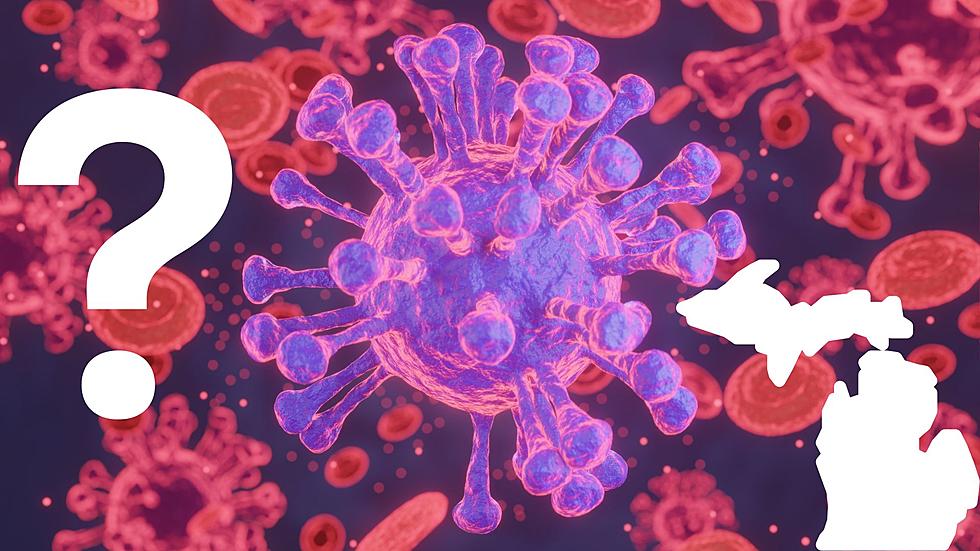
Rare And Extremely Serious Viral Disease Spreading In Michigan
We have seen many different viral diseases come through America and cripple American citizens and the country as a whole. We have also seen viral diseases come to America and die or not be nearly as deadly as they were in other parts of the country. Diseases like Malaria, Ebola, and Covid-19 are a few of the notable ones but apparently there is a new viral disease in the United States that can even be deadly.
There have been reports of another rare, very serious, and sometimes fatal disease has started to circle the country. New York was the first state to announce that they had seen cases of the disease and that everyone should be on the lookout. The disease in question is Eastern Equine Encephalitis (EEE) which has been detected in Michigan as well. Is this something we all need to be concerned for?

Learning about Eastern Equine Encephalitis (EEE)
Eastern Equine Encephalitis is a disease that is transmitted and contracted by mosquitos, as someone can only be infected once they are bit by a mosquito that is carrying EEE. This means that for now we don't have anything to worry about as the mosquitos just departed for the winter, but they'll be back soon, and Eastern Equine Encephalitis could be a huge problem.
So far, Michigan has done well at keeping this disease at bay, but we are one wild summer away from having a massive outbreak. We have managed to keep humans away from EEE during the 2023 year but one horse from Mecosta County, one deer from Livingston County, and four mosquito pools from Barry, Bay, and Saginaw counties have tested positive for EEE.
What To Do If You Suspect EEE
- If EEE is suspected in a horse, it should be reported to the Michigan Department of Agriculture and Rural Development at 800-292-3939 (support may be available to pay for testing).
- If EEE is suspected in a person, it should be reported to MDHHS at 517-335-8165
Risks and Symptoms of EEE
- EEE virus has been reported from the Atlantic to the Gulf Coast states and the Great Lakes region, including Michigan.
- Anyone in an area where the virus is present can get infected with EEE virus from a mosquito bite.
- People who engage in outdoor work and recreational activities in endemic areas are at increased risk of infection.
- Persons over age 50 and under age 15 seem to be at greatest risk for developing severe disease when infected with EEE.
- EEE infection is thought to confer life-long immunity against re-infection to survivors.
- No symptoms in many people. Most people who become infected with EEE do not develop any symptoms.
- Febrile illness in some people. Some people who are infected will develop chills, fever, weakness, muscle and joint pain. The illness may last up to two weeks. Most people with this type of EEE disease recover completely, but fatigue and weakness can last for weeks or months.
- Severe symptoms in a few people. Less than 1% of people who are infected will develop a serious neurologic illness such as encephalitis or meningitis (inflammation of the brain or surrounding tissues).
- The symptoms of neurologic illness can include high fever, headache, irritability, restlessness, drowsiness, anorexia, vomiting, diarrhea, bluish discoloration of the skin, convulsions, and coma.
- Serious illness can occur in people of any age. However, children and people over 60 years of age are at the greatest risk for severe disease. People with certain medical conditions, such as cancer, diabetes, hypertension, kidney disease, and people who have received organ transplants, are also at greater risk for serious illness.
- Recovery from severe disease may take several weeks or months. Of those who recover, many are left with disabling and progressive mental and physical sequelae, which include can range from minimal brain dysfunction to severe intellectual impairment, personality disorders, seizures, paralysis, and cranial nerve dysfunction. Many patients with severe sequelae die within a few years.
- About 30 percent of people who develop neurologic infection due to Eastern Equine Encephalitis will die.
The 5 Most Common Ticks You'll See in Michigan & Diseases They Carry
Gallery Credit: Youtube, Michigan.gov
How to protect yourself against West Nile, other mosquite-borne diseases
Gallery Credit: Dino Flammia
Lyme Disease by County in Michigan
Gallery Credit: jrwitl

